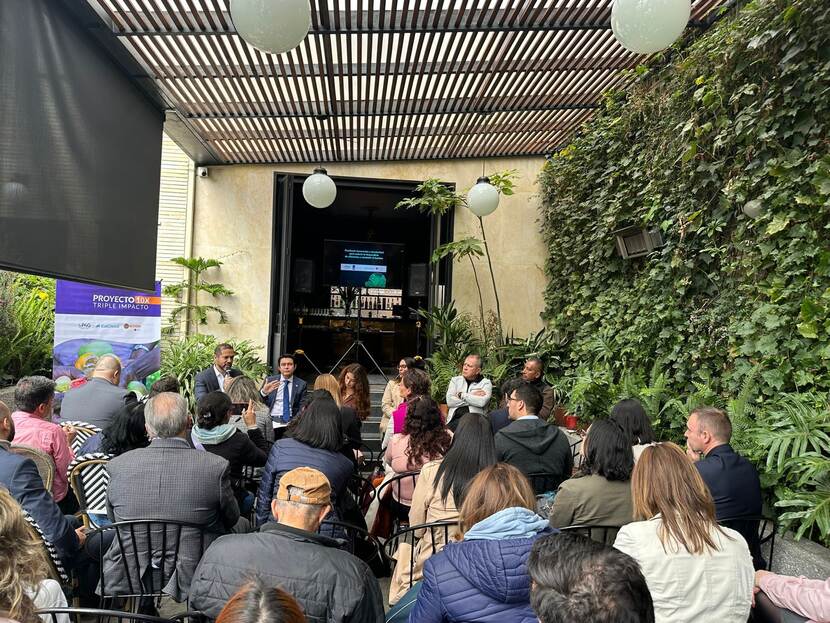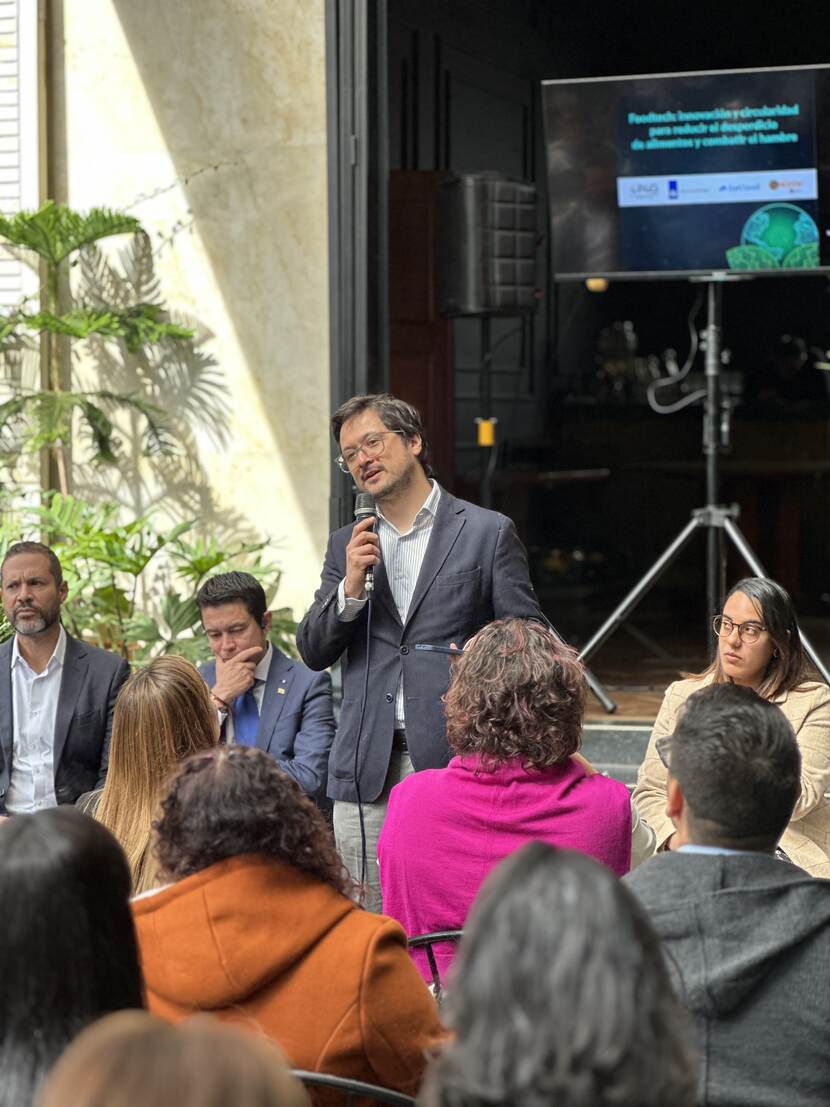Foodtech Colombia: Innovation and circularity to reduce food waste and fight hunger
In a country where millions of people suffer from hunger and food waste is a growing problem, food technology, known as Foodtech, is emerging as a powerful tool to address these challenges.
In Colombia, 9.7 million tons of food are wasted per year (DNP, 2019) and about 15.5 million people are exposed to the risk of food insecurity, in addition to the above, food waste is responsible for 7% of global emissions of Greenhouse Gases (GHG). At the global level, technology is advancing at great speed, artificial intelligence, software developments, mobile applications, among others, offer solutions that improve efficiency, logistics, traceability and data synchronization in real time, allowing to address more quickly any problem that may lead to food waste.
In this context, the project 'Digital transformation of the food rescue ecosystem', funded by P4G, is an innovative bet to contribute to mitigate the impact of food waste in the distribution and sales phases in Colombia and Mexico, through the use of artificial intelligence and strategic alliances with retailers, food banks and civil society. This project combines the expertise of Conexión -ICCO Cooperación, a Latin American NGO of Dutch origin, and EatCloud, a Colombian company.

As part of this alliance, on July 11, the conference "Foodtech: Innovation and circularity to reduce food waste and fight hunger" was organized by Conexión together with the Embassy of the Kingdom of the Netherlands, which brought together trade union representatives, private sector companies, European embassies, international cooperation organizations and public sector entities, to discuss the challenges Colombia faces in terms of food waste, and how technology is already transforming the system: increasing the volume of food recovered, reducing operation times and achieving more cost-efficient recovery processes.
"At Makro, we started food recovery very slowly. At the beginning, with our processes, which were mostly manual, we were able to recover more or less 74 tons of food. Today, using the solutions offered by EatCloud we are rescuing 153 tons per month, in a much more efficient process, which allows us to reach more banks and foundations," shared Rosmary Morales, Makro's Regional Head of Sustainability, during the discussion.

"Technology allows us to save time, save money and allows us to expand the coverage of food rescue, for example, Eatcloud has a presence in 230 cities and municipalities in Colombia, supporting the work of food banks that are in 25 capital cities and working with their attached organizations. When with technology we are able to connect all these points of sale at the country level of an organization, and we are able to understand how, when and where these products leave the sales inventory, we have very valuable information and we can make timely decisions," said Jorge Correa, CEO of EatCloud during the panel.
This event, which brought together multidisciplinary and multisectoral views, thanks to the participation of members of academia, civil society, Makro as one of the major retailers, food banks and the Ministry of Agriculture in the panel, offers some clues about the meeting points between the different sectors to continue promoting this type of transformation. Some of the most relevant conclusions of the discussion were:
- The need to find ecosystemic solutions to the problem of food waste, in which all actors in the food chain play an active role.
- The potential that exists in the use of technology to collect and analyze data and indicators on food loss and waste at the national level in real time, to enable more effective action plans to be designed to address this problem and to make better-informed decisions.
- The potential offered by technological tools to scale local solutions and enhance their impact.
- The importance of involving young people as key actors in driving these transformations in both urban and rural areas, promoting the adoption and transfer of technology, fostering intergenerational dialogues that take advantage of their proximity to technology, creativity and interest in these innovations.
- The promotion of multisectoral dialogues to define concrete action plans for the design, adjustment and implementation of public policy against food waste.
The way we talk, think, buy and consume food, as well as the role of young people in these technological, economic and social transformations, constitute an important part of the challenges the country faces, and will remain key in this agenda of technology, circularity and innovation to reduce food waste and fight hunger.